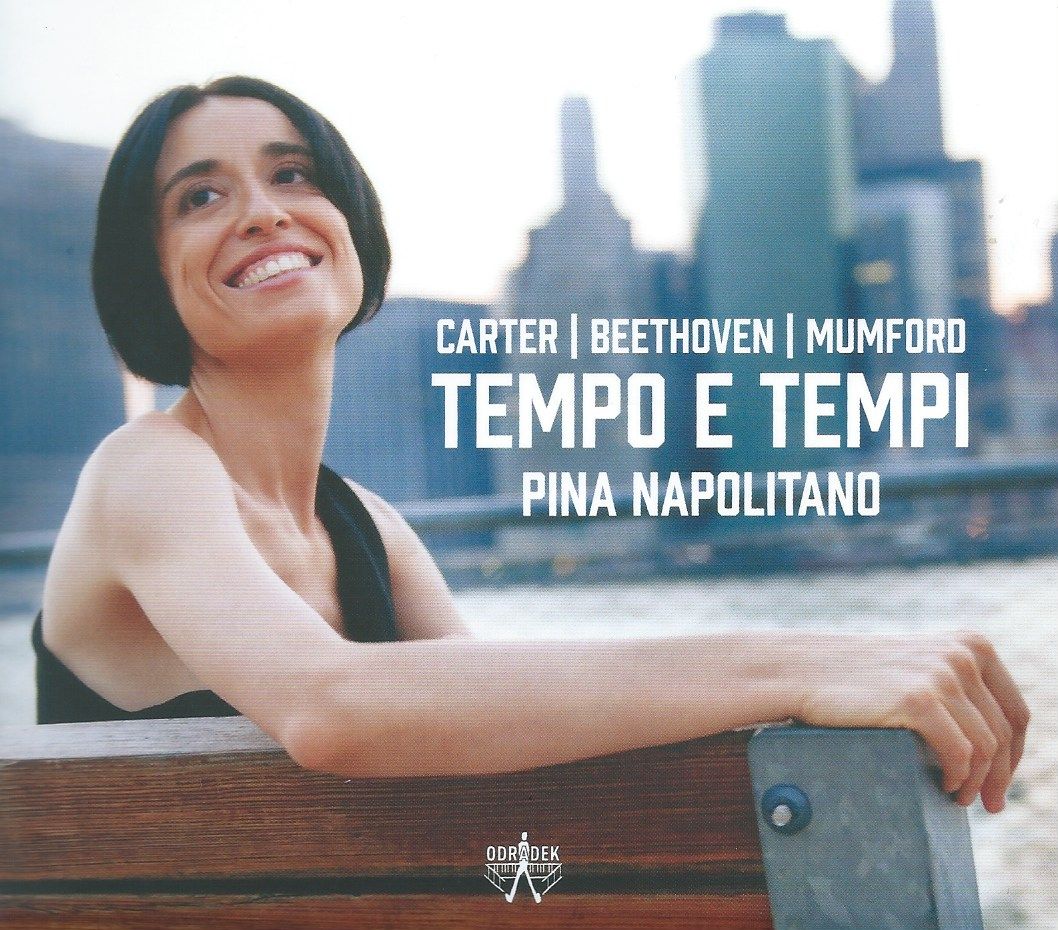Tempo e Tempi: Beethoven meets Carter meets Mumford
2020 is Beethoven year, after all: pianist Pina Napolitano reminds us of his greatness

2020 is Beethoven year, after all: and if it is hardly turning out as expected, pianist Pina Napolitano reminds us not only of Beethoven's greatness, but also illuminates his last two sonatas by programming them with pieces by Elliott Carter and Jeffrey Mumford (one of Mumford's pieces is available as a download/stream due to the playing time of the recital).
It's worth noting that the record company, Odradek, is based in Pescara, Italy, a beautiful city that looks out on the Adriatic Sea. Why should this be so noteworthy for disc featiring music by a German, English and American composers? Because that's where, at Lungomare Matteotti 79, the famous Steinway showrooms are, overseen by one Angelo Fabbrini. If the name seems familiar, it is because of the concept of the Fabbrini Steinway. Fabbrini has provided pianos for the greatest names - he worked with Muchelangeli for decades, and concert-goers attending Maurizio Pollini's recitals will be familiar with Fabbrini's signature emblazened on the side of the piano. The pianos are extraordinary (as is his showroom); and Odradek's studios are just up the road. It's a pianistic marriage made in heaven.
Pina Napolitano's previous discs that are of especial note include Brahms The Progressive (late Brahms with Berg and Webern) and the complete Schoenberg piano works. So it is perhaps unsurprising that we are presented here with Beethoven in the compoany of Elliott Carter. Tempo e Tempi (Time and Times) - the title of a poem by Eugenio Montale (1896-1981) that gives this disc its title in turn - brings in concepts of muliple times, and of one underlying time, concept sapplicable to all of the pieces on ths album. The poem was set to music by Elliott Carter in the late 1990's.
Odradek has released an "album teaser" that includes some fabulous visuals:
Carter's Night Fantasies is complex; but within that uncompromising surface is beauty as pulse and tempo exist in a continuously fluctuoating continuum of modernism. You just have to give it a chance, allow it to grow - not on you, but within you. And after that, how the opening chords of Beethoven's A flat Sonata, Op. 110, seem to glow. This is a lovely performance, simultaneously intelligent and beautiful - and the sound of that Steinway has to be heard to be believed, so well balanced, with a gloriously sweet top that sustains magnificent cantabile. Napolitano invites us to see the Beethoven as splintering off in various directions: fugally, to Bach's A flat major Fugue from Book I (BWV 862); but perhaps the violin "sobs" from Beethoven's own String Quartet Op. 130 also come into play in some of the right-hand melodies against a throbbing left-hand.
Carter's Two Thoughts about the Piano is actually two pieces: "Intermittences" and "Caténaires," both wirtten in his 90's. When I first heard this disc, it was the unpredictable accents of "Caténaires" that appealed - now, further down the line, "Intermittences" has been revealing its beauties. This is a disc that rewards many, many listenings.
Beethoven's final, C minor, Piano Sonata, Op. 111 hardly seems out of place; its deramatically plunging opening seems almost dismissive of the Carter. But of course we meet the other side of Beethoven too, the ecstatic meditations of the Adagio molto semplice cantabile, deliciously unhurried, transcendental. To hear the first of Jeffrey Mumford's Elliott Carter Tributes, "For Elliott," straight afterwards affords an odd sense of rest to the disjunct intervals; heading to the Web for the second, "A Celebration of Elliott" we finds a more celebrational piece, perhaps with echoes of bells in there, too.
Beautifully presented, miraculously recorded and with a programme to die for, this, surely, is what recordings should be all about.
Let's end with a reminder of Napolitano's Brahms, something mightily restful after all that complexity: the wonderful A major Intermezzo, Op. 118/2, recorded in "The Spheres," Odradek's recording studio (occasionally used, also, for small concerts):
